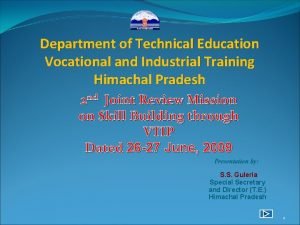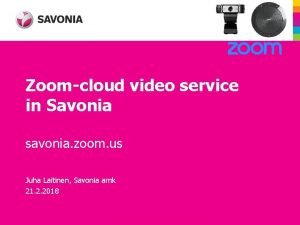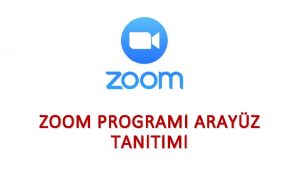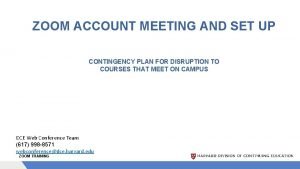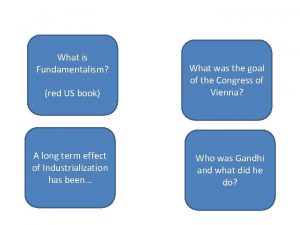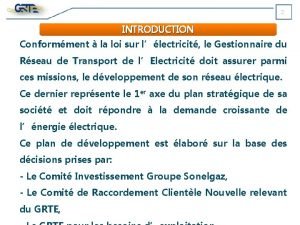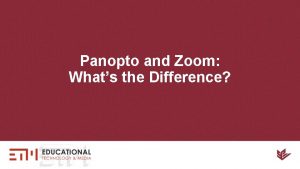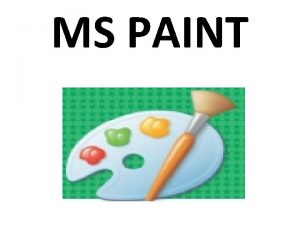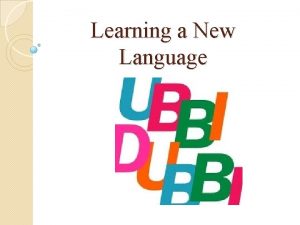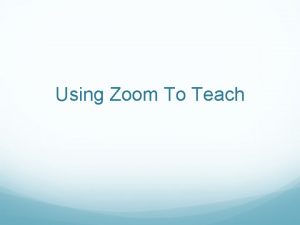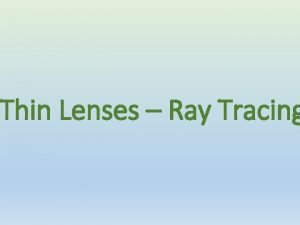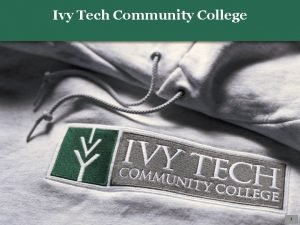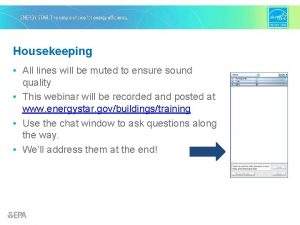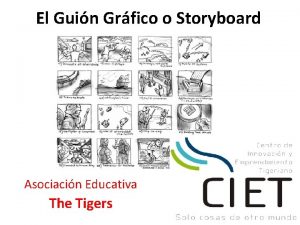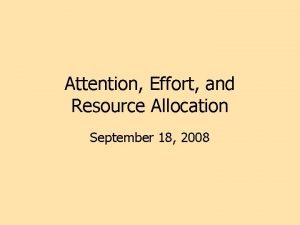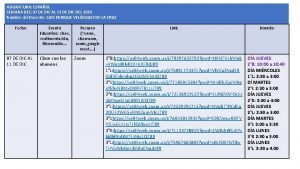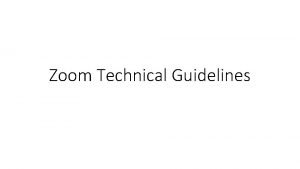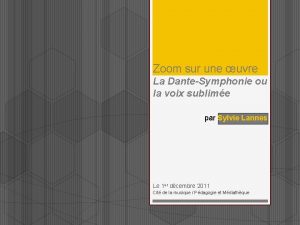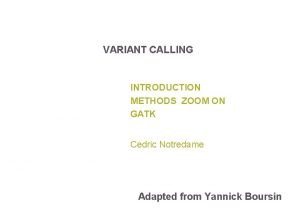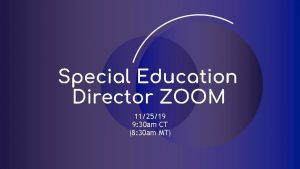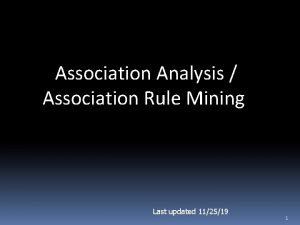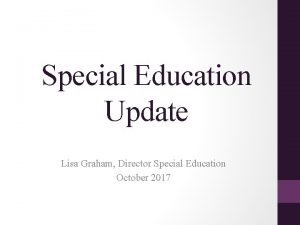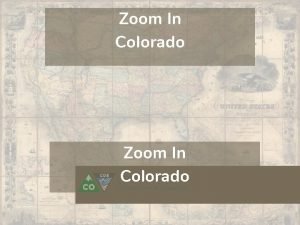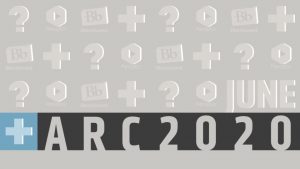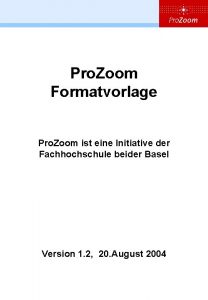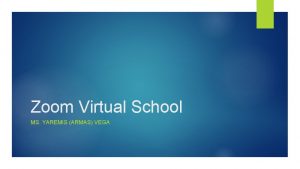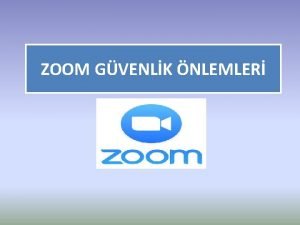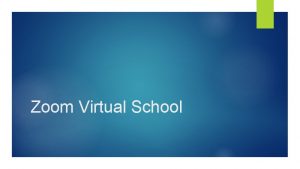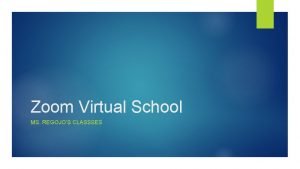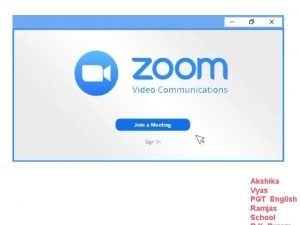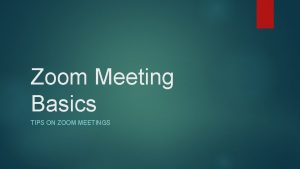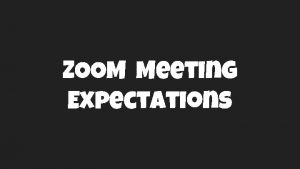Special Education Director ZOOM 112519 9 30 am




























- Slides: 28

Special Education Director ZOOM 11/25/19 9: 30 am CT (8: 30 am MT)

Director Updates - Steve Milliken ★ Paraeducators of the Year ★ Personnel Shortage ★ Leadership Liaison Team ★ Federal Update

Assistant Director Updates - Amy Rhone ★ Prior Written Notice ★ Misconceptions around TSI/ATSI ★ Equity requirements in IDEA


Prior Written Notice Guidance Document: • Requirements within Rule • Drafting the Prior Written Notice • Means of Providing Prior Written Notice • Timeliness of Prior Written Notice • Prior Written Notice and the IEP • Acknowledgement of Receipt

Both Federal and state regulations are clear that prior written notice must be provided to the parents of a child with a disability a reasonable time before the school district proposes or refuses to initiate or change the identification, evaluation, or educational placement of a child or the provision of a free appropriate public education. When implemented correctly, prior written notice allows parents to fully participate in the educational planning process and a reasonable time to fully consider the change and respond to the action before it is implemented.

Misconceptions around TSI/ATSI Students with disabilities, by definition, cannot be proficient. Students with Disabilities in specific areas – with the right support can become proficient. IDEA requires that schools provide special education and related services to meet the individual needs of each student with a disability. To provide these services, a team of educators and parents develop a plan (referred to as an “Individualized Education Program”, or IEP) for each student with a disability that maps out what achievement is expected and what services are needed to help the student meet these expectations. With the appropriate supports and services, students with disabilities can and should be held to high standards.

Misconceptions around TSI/ATSI If students with disabilities reach proficiency, they have to exit special education. Students are not identified with disabilities based on a lack of proficiency, proficiency does not define eligibility. When a parent or school personnel suspect that a child is no longer eligible for special education and related services, a reevaluation must be conducted to determine if the child is no longer a child with a need for special education (92 NAC 51 -006. 06 E). As part of the reevaluation, the IEP team will review existing data and determine whether they need to conduct any additional assessments. If it is determined by the IEP team through a reevaluation that the child is no longer a child with a disability (no longer needs special education and related services), the district will provide the parents with Prior Written Notice of this decision before discontinuing services. Typically, if the IEP Team determines that a child is no longer eligible, the reason is that the child no longer has a need for special education and related services. For example, a child who was identified with speech and language delays as a young child has benefited from speech/language services, met the exit criteria determined by the IEP Team, and no longer needs such services. Services may be discontinued, if the IEP team determines that the data support that the child no longer has a need for special education services. There is no requirement for a student who meets proficiency to exit special education. A student may be exited from special education when they no longer need special education and related services.

Misconceptions around TSI/ATSI Our district will just need more students to take alternate assessment (we are a small school and 1% is not fair) Alternate assessment tests have been designed for students with severe cognitive disabilities or multi-handicapping conditions, generally less than 1% of the overall student population. The U. S. Department of Education does not currently define “most significantly cognitively disabled students. ” NDE does define “most significantly cognitively disabled students” as required in ESSA. It is expected that the local IEP team will carefully consider each of the following guidelines before determining participation on an alternate assessment: The student · Accesses curriculum and instruction closely aligned to Nebraska College and Career Ready Academic Standards with Extended Indicators · Possesses significant limitations, both in intellectual functioning and adaptive behavior, expressed in conceptual, social, and practical adaptive skills. · Requires extensive, pervasive, and frequent supports in order to acquire, maintain, and demonstrate performance of knowledge and skills. · Demonstrates cognitive ability and adaptive behavior that prevents completion of general academic curriculum, even with extensive modifications and accommodations. · May have an accompanying communication, motor, sensory, or other disability. Thus, the alternative assessment is not an “easier” option for students but rather an option to provide access to students with disabilities. Reaching proficiency would not be determined based on the type of assessment a student would take.

Misconceptions around TSI/ATSI Our students with disabilities need more interventions Students with disabilities need to have access to the instructional core that all students have access to, with the appropriate accommodations or modifications that are necessary to meet their needs. The MTSS framework is used for all students, not just for those in special education programs. In fact, the majority of MTSS/RTI strategies and interventions occur in the regular classroom because it’s the broadest section with the most students. In addition, any student can receive interventions found in all three tiers of the RTI framework without being in a special education program. While there is a bit of overlap, there is a difference between MTSS and special education. Students with disabilities are general education students first and should be treated as such!

★ Equity requirements in IDEA The Individuals with Disabilities Education Act (IDEA) has three distinct requirements around equity: DIsproportionate Representation, Significant Discrepancy, and Significant Disproportionality. In March 2019, the federal court ruled that the U. S. Department of Education cannot delay implementation of a policy intended to draw closer attention to minority over-representation in special education under the Individuals with Disabilities Education Act.

In 2020, Nebraska will implement methodology, utilize data sources, and reporting consideration for each of the three equity requirements per the IDEA requirements. Technical assistance and guidance are available here: https: //ideadata. org/sites/default/files/media/docum ents/2018 -05/IDC_Equity_Comparison. pdf

Fiscal - Greg Prochazka ★ 2019 -2020 Submission of reimbursement claims ★ Proportionate Share Submission – Due December 15 ★ Amending 2019 -2020 IDEA Consolidated Applications ★ 2019 -2020 MOE Tool

Data Part B - Robyn Gonzales ★ Indicator 11 & 12 update

Autism & Low Incidence - Teresa Coonts ★ DHH -access to licensed interpreters ★ BVI- Braille Challenge, Feb. 12 and Spring Fling conference, Mar. 26 -27 ★ ASD Network-Tri-State Autism Collaborative (attachment) ○ RBT Training through ASD Network: https: //www. unl. edu/asdnetwork/registeredbehavior-training-online-course

GOLD Updates - Kayla Parr ★ OSEP Entry and Exit Requirements for Part C and Part B ★ Upcoming In-Person GOLD training series (see training calendar) ★ Upcoming GOLD Administrator Webinars (see training calendar)

Prepare the files for GOLD OSEP reporting

Check Key Elements Needed for OSEP Reporting Step 1: select administrat ion Step 2: click view children Step 3: click ‘select columns to display

Select Columns to Display


Updating Child Profiles

OSEP Status Report

Assessment - Sharon Heater ★ Alternate Assessment ★ ACT Accommodations window open

Targeted Improvement Plan - Kelly Wojcik ★ DUE December 2, 2019 ★ FAQ for the TIP

SOS - Statements on SPED November 2019

Upcoming Events 2019 Dec No GOLD TA Webinar Dec No SPED Director Call 2020 January 24 th GOLD TA Webinar 2: 00 -3: 00 CT January 31 st SPED Director Zoom February 5 th GOLD: Key to Responsive Planning, SCC, Lincoln, NE (registration found on NECPRS) February 6 th GOLD: Administrative Support: Interpreting and Using Data, ESU 2, Fremont (registration found on NECPRS) February 6 th GOLD: Using Your Observation to Individualize Instruction, ESU 2, Fremont (registration found on NECPRS) February 21 st GOLD TA Webinar 11: 00 -12: 00 CT March 20 th GOLD TA Webinar 11: 00 -12: 00 CT April 2 -3 ASD State Conference, La. Vista, NE April 17 th GOLD TA Webinar 11: 00 -12: 00 CT May 15 th GOLD TA Webinar 11: 00 -12: 00 CT June 4 -5 NE School Mental Health Conference, La. Vista, NE June 16 -17 Nebraska Young Child Institute, Kearney, NE July 8 -10 Deaf-Blind Summer Institute

Next Call! Friday January 31 st, 2020

SPED Director ZOOM
 Director of technical education hp
Director of technical education hp Zoom savonia
Zoom savonia Zoom timer background
Zoom timer background Zoom ses kapatma
Zoom ses kapatma Luc.zoom.us
Luc.zoom.us Harvard zoom account
Harvard zoom account Chapter 2 europe looks outward
Chapter 2 europe looks outward Zoom school
Zoom school Ain defla zoom
Ain defla zoom Purpose of conversation
Purpose of conversation Spu panopto
Spu panopto Eraser ms paint tools
Eraser ms paint tools Speaking ubbi dubbi
Speaking ubbi dubbi Geogebra matrices
Geogebra matrices Zoom objectives
Zoom objectives Zoom teilnehmerliste exportieren
Zoom teilnehmerliste exportieren Beautify yourself app
Beautify yourself app Zoom enus articles
Zoom enus articles A lens produces a sharply focused
A lens produces a sharply focused Jumpstar
Jumpstar Wake tech advisors
Wake tech advisors Zoom webinar housekeeping script
Zoom webinar housekeeping script Zoom
Zoom Wickens
Wickens Https //04web.zoom
Https //04web.zoom Zoom interpretation
Zoom interpretation Zoom dante
Zoom dante Zoom login
Zoom login Yannick boursin
Yannick boursin
